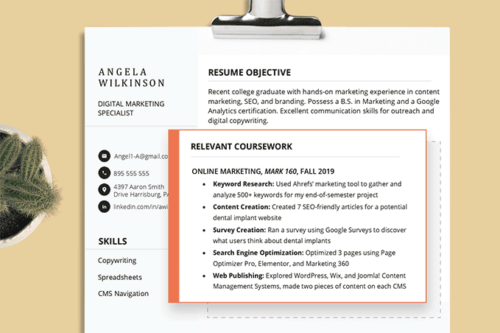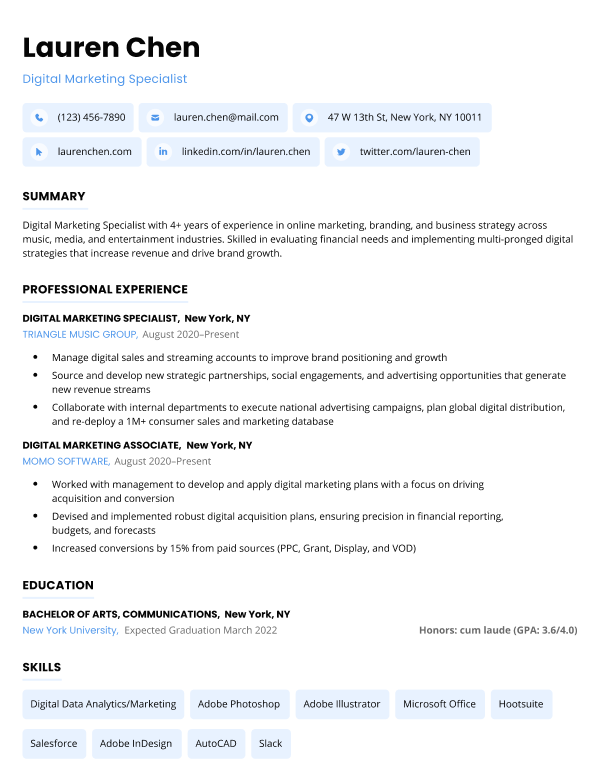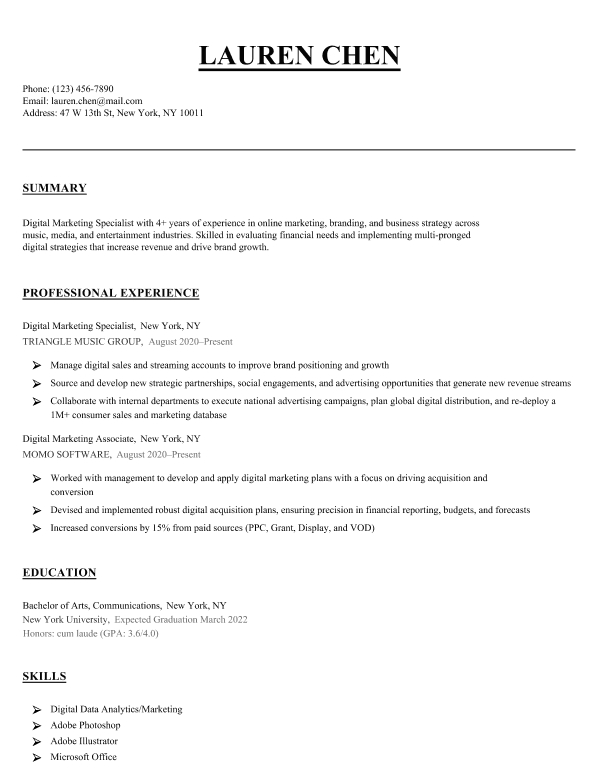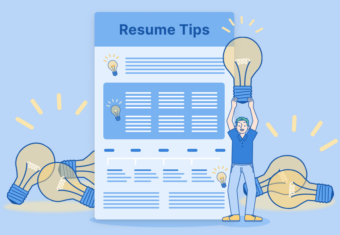Wondering whether to list relevant coursework on your resume? In this article, we explain when you should, what the advantages are, and provide several examples as a guide.
Our free-to-use resume builder can make you a resume in as little as 5 minutes. Just pick the template you want, and our software will format everything for you.
When to include relevant coursework on a resume
There are certain situations where you should include relevant coursework on your resume.
If you’ve recently graduated or will graduate soon
The best time to include relevant coursework on your resume is if you’re a recent college graduate.
If you’ve spent the last few years studying and completing difficult assignments, you can showcase the skills you’ve developed from that experience on your resume.
Including relevant coursework is especially important if you’re writing a resume with no work experience, because your coursework shows that you have key skills and knowledge, even if you haven’t held a formal job yet.
If you’ve just graduated, learning how to make a great resume will help you land your first job in the professional world.
If you’re a grad student changing careers
Including relevant graduate coursework on your resume demonstrates the skills and knowledge you’ve acquired that apply to your new career field.
Your graduate school courses have likely given you foundational abilities that are unrelated to your previous work experience, so it’s important to showcase these.
When not to include related coursework on a resume
If your resume already fills a page without any coursework on it, you don’t need to include it. The perfect resume should prioritize your most relevant work experience over your coursework.
How and where to put relevant coursework on your resume
You can talk about your coursework in your:
- education section
- work experience section
Example of relevant coursework in an education section
Most people include coursework in the education section of their resumes.
If you want to expand your education section, write “Relevant Coursework” under your degree name, and then use commas to separate the names of the courses. For example:
How to list relevant coursework in your education section
Bachelor of Arts in Anthropology
New York University, New York City, 2018
Relevant Coursework: Language and Identity, Culture and Society, Medical Anthropology, Anthropology of Gender and Sexuality, Humans Rights and Culture
If you have plenty of space, turn your relevant coursework into a bulleted list so each course is on its own line:
How to list relevant coursework using a bulleted list
Bachelor of Arts in Anthropology
New York University, New York City, 2020
Relevant Coursework:
- Language and Identity
- Culture and Society
- Medical Anthropology
- Anthropology of Gender and Sexuality
- Humans Rights and Culture
If you want to create a functional resume with a longer education section, consider formatting your relevant coursework like you would format a work experience section, like this:
How to list relevant coursework similarly to work experience
Bachelor of Arts in Anthropology
New York University, New York City, 2020
Relevant Coursework
Social and Developmental Psychology:
- Studied qualitative research methods by reading and discussing 10+ academic articles
- Designed an online, 20-question qualitative research survey about language and identity formation
- Conducted a qualitative survey with 147 college students using Qualtrics
- Aggregated and interpreted survey results in a 10-page paper and 15-minute presentation
Example of relevant coursework in a work experience section
Including coursework in your work experience section allows you to share detailed information about what you did for each course.
In this instance, you should pick the courses most relevant to the job you’re applying for, create a bulleted list for each, and format them as you would past jobs you’ve had.
Ideally, your course descriptions should include quantifiable information. For example:
How to list relevant coursework with quantifiable information
Online Marketing, MARK 160, Fall 2020
- Keyword Research: Used Ahrefs’ marketing tool to gather and analyze 500+ keywords
- Content Creation: Created 7 SEO-friendly articles for a dental implant website
- Survey Creation: Ran a survey using Google Surveys to discover what users think about dental implants
- Search Engine Optimization: Optimized 3 pages using tools including Page Optimizer Pro, Elementor, and Marketing 360
- Web Publishing: Became proficient in content management systems like WordPress, Wix, and Joomla!, and made at least one piece of content per CMS
Unsure how to format your resume? Browse our sample resumes in your field for ideas.
Click to rate this article
4.8 Average rating
















